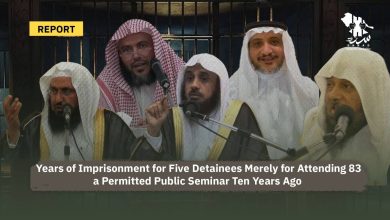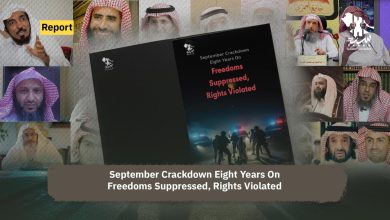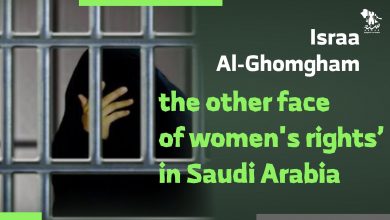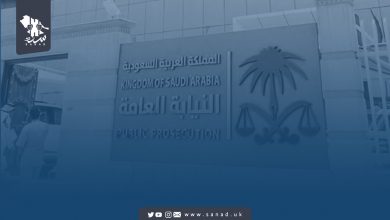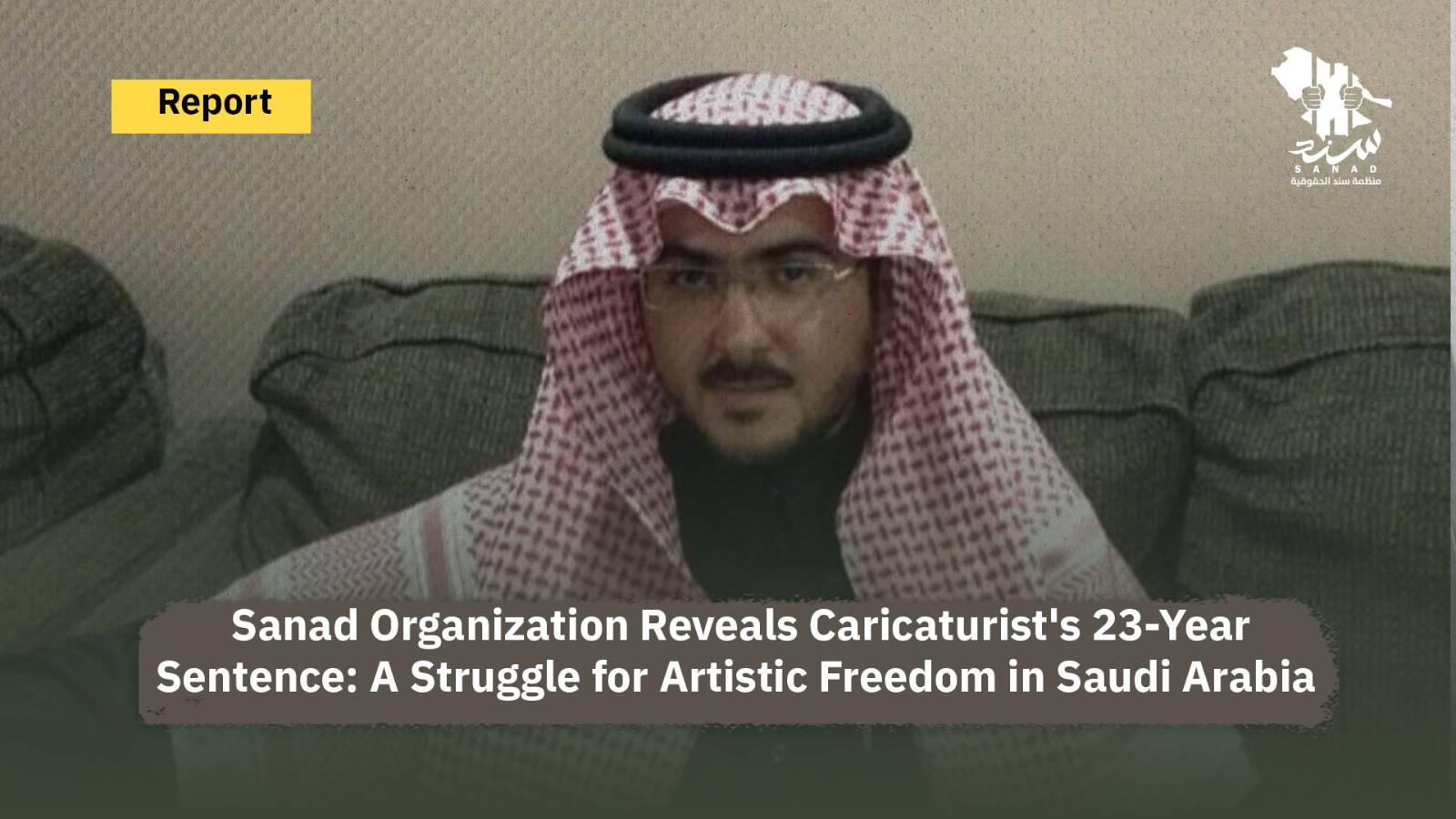
Sanad Organization Reveals Caricaturist’s 23-Year Sentence: A Struggle for Artistic Freedom in Saudi Arabia
The Sanad Human Rights Organization has unveiled the shocking case of Mohammed Alhazza
Alghamdi, a caricaturist and teacher who was arrested by Saudi authorities in February 2018. His detention was a direct consequence of his work with Lusail, a Qatari newspaper, despite having ceased contributions shortly before his arrest.
Sources indicate that Alhazza was under surveillance by an undercover informant before his arrest. While traveling to a wedding, the informant sat next to him on both flights. After returning home, security forces, guided by the same informant, conducted a violent raid in a café where he was with a friend, leading to his arrest. They then invaded his home, ignoring the fact that his pregnant wife was present, confiscated his belongings, and ransacked his studio, causing significant distress to one of his children—all without a legal search warrant.
Alhazza faces numerous charges, among them alleged sympathy for Qatar and claims that he produced 100 insulting drawings. He is also accused of tweeting that Qatar did not deserve the severing of diplomatic ties, as well as communicating with perceived adversaries and following opposition accounts on X (formerly Twitter).
In his defense, Alhazza explained that he had worked remotely for Lusail before diplomatic relations with Qatar were cut and only briefly afterward. He denied that the drawings cited by the prosecution were offensive to Saudi Arabia, asserting that most related to internal Qatari issues were not derogatory. He clarified that all the drawings presented were from his time at the newspaper, not created after the severing of ties, and added that some of the evidence had been fabricated.
Additionally, Alhazza requested proof that any of his artwork insulted the Saudi government, a request that the prosecution failed to meet. He presented a letter from Dr. Ghazi Algosaibi, a former respected political figure in Saudi Arabia, praising his artwork as constructive criticism, which directly contradicts the accusations against him.
Regarding the claim that he stated Qatar did not deserve the severance of ties, Alhazza firmly denied making such a statement. He emphasized that there is no material evidence to support this claim, and it is not reflected in the case records. This strongly suggests that Saudi authorities fabricated this accusation, just as they did with others. Sanad asserts that even if this were proven, it would not constitute a crime but would fall under legally protected freedom of expression.
Alhazza highlighted that his interactions with Qatari citizens were personal and not governmental, emphasizing that the crisis was political, not personal. He pointed out inconsistencies in the ruling that followed, which labeled Qatar as an adversarial state despite it not being so at the time of the alleged offenses, nor at the time of the verdict, which came after the appointment of a Qatari ambassador and the restoration of relations.
He challenged the prosecution to provide any legal basis for criminalizing the act of following accounts on X, which they cited as evidence of his supposed misconduct. This challenge exposed the prosecution’s inability to substantiate their claims.
Despite the logical nature of Alhazza’s defense, the court ignored his arguments, even admitting that the evidence presented was insufficient to prove any insult. Nevertheless, he was convicted, which is a blatant violation of his rights.
Reports indicate that Alhazza has faced serious abuses, including being coerced into confessing to unsubstantiated charges and enduring months of enforced disappearance. His communication with his family was completely severed after his arrest, and they faced restrictions during visits following his sentencing. Additionally, he has suffered ongoing degrading treatment and medical neglect.
Alhazza, who had Diabetes prior to his imprisonment, is now facing even more serious health issues due to inadequate medical care. The intentional neglect he has experienced has led to a significant decline in his health, requiring hospitalization for several days. Despite the grave risks to his life, this neglect continues, leaving his urgent medical needs unmet.
While all charges against Alhazza pertain to legally protected freedom of expression, the trials were tarnished by absurdity and evidence fabrication. The Specialized Criminal Court initially sentenced him to six years in prison along with a travel ban, The case was subsequently reopened, resulting in a 23-year sentence that cannot be appealed. He is currently serving his sentence in Dhahban Central Prison in Jeddah, Saudi Arabia.
This situation underscores the urgent need for international action to protect artistic freedom and human rights in Saudi Arabia. Alhazza’s case exemplifies the troubling climate in Saudi Arabia, where no one is truly safe; he became a target simply for being an artist, nothing else. This reality poses a significant threat to all creative individuals in the country, making it essential for us to advocate for change and support those who dare express themselves.


